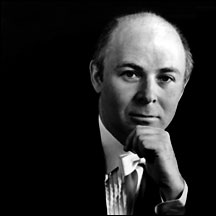Pianist Jorge Federico Osorio
A Conversation with Bruce Duffie

In the course of doing interviews for about thirty years, I am pleased to say that each one is unique and has special qualities. At the same time, a few generally-accepted ideas emerge, and one that tends to rise to the top is the lament by many guests about the lack of music in the elementary and secondary schools. Around the country — and even around the world to some extent — the musical education of the general population seems to have been pushed out of the curriculum. Whether due to time constraints or budget considerations, administrators have taken the easy route of lopping off music and art in order to save something. Little do they realize that these savings will result in a huge loss for society, but that is fodder for a whole other discussion.
I bring this up because there are a few major noteworthy performers who try to fill the gaping holes with in-school performances and other exceptional ways of bringing this rewarding side of life to eager young minds. Jorge Federico Osorio is one such visionary.
As usual, details about his life and career can be found in the box at the end of this presentation.
When we met here in Chicago in the summer of 1994, he was finishing up a busy day filled with these special appearances . . . . .
Bruce Duffie: You just came from playing concerts for young people. Tell me the joys and sorrows of playing for younger audiences.
Jorge Federico Osorio: This morning I played for a very young audience. There were maybe sixty kids there, all with their programs waving all the time I was playing!
BD: Oh, to keep them cool? They were using the programs as fans?
JFO: Yes! [Laughs]
BD: So they used them as fans, but did they become “fans” of piano music?
JFO: Maybe some of them, yes. You never know with kids. Sometimes they seem they’re not really there, but they’re so aware of so many things. It’s just a matter of how you present things to them that really matters. And that’s what they sense; they feel if you’re really doing it because you really feel intensity about. You can’t fool them!
BD: I assume you wouldn’t want to try and fool them.
JFO: No, no, no. I don’t mean “fooling.” Many people have this attitude that you just play it without feeling because they can’t really grasp subtleties. But everything is really for each individual to decide.
BD: Is the change between an adult program and a children’s program the selection of repertoire rather than in the performance practice?
JFO: Yes, but I’ve had very mixed experiences with that. Sometimes you choose a program that you think is really for children, and then suddenly things change. I had experiences in Mexico playing in schools — a Prokofiev sonata with all this rhythm and all this percussive style — and they just loved it! They didn’t want just the Twinkle, twinkle little thing! [Both laugh] You know what I mean.
BD: They wanted something a little more invigorating?
JFO: Yes, exactly! That Prokofiev is a very unknown piece for this type of public, and they really enjoyed it! I remember also playing a Bartók sonata once, with all these rhythms and all this coloring and my sweating there, and I know that they enjoyed that!
BD: Can you be more adventurous with young people?
JFO: Yes, why not? They’re really open to everything, and in a way they’re not so spoiled.
